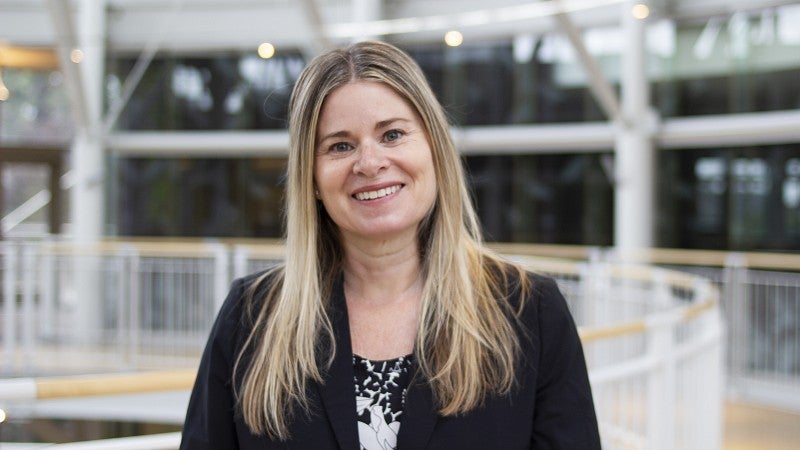
An appreciation of asynchronous learning creates a champion for online student success
Deb Bauer was an early adopter of asynchronous online instruction.
A Powell Distinguished senior instructor II of finance in the Lundquist College of Business, Bauer said she started teaching online courses in 2009, in part because it fits her own learning style.
“The way I learn is very independent,” she said. “I need focused concentration. I’m not a great auditory learner. So for me, asynchronous learning would be excellent.”
In recognition of her work, Bauer has been awarded the Herman Online Distinguished Teaching Award. The award recognizes faculty members who have demonstrated innovation and creativity in implementing excellent learning experiences using online or hybrid formats. Winners receive a $5,000 award.
Bauer said she was surprised and honored to win the award.
“When I think about teaching – I’ve been doing it now for 25 years, it’s something I've dedicated my life to, connecting with students and improving my teaching – it's such an honor to have that recognized.”
Bauer is no stranger to accolades for her work. She has won the Oregon MBA Excellence in Teaching Award; the Ersted Award for Distinguished Teaching; and five teaching awards in the Executive MBA program by student vote.
“She is a true pioneer of online instruction on this campus,” Lundquist Dean Bruce Blonigen and Finance Department head Jay Wang said in their nomination letter.
Wang and Blonigen said Bauer has embraced the best practices so critical to the success of online students, including engaging students and fostering peer-to-peer interaction with discussion boards, adopting Universal Design for Learning principles for accessibility, and providing the structure and guidance to make expectations, grading, and objectives clear and keep students on pace.
The courses Bauer teachers are asynchronous, meaning students and instructor do not meet at the same time. Course materials are prepared ahead of time and posted on the course Web site. The coursework is not exactly self-paced – students still need to meet deadlines to keep up.
Before the pandemic, a certain type of learner was drawn to online instruction. Post pandemic, all students have become more comfortable in a digital learning environment, she said.
To help build community, Bauer said she starts each course with a welcome video introducing herself and her role as a partner in their learning.
“Undergrads can feel fearful of finance,” she said. “I make it clear that I’m not here to judge you, I’m here to help you and be a partner in your success.”
She assigns students to make their own introductory videos so they can get to know each other and requires them to respond to at least two other students’ videos. Students work in teams on discussion boards, where they answer questions about learning materials and how it applies to their lives. She also hosts in-person study sessions.
“I love connecting with students in the classroom,” she said. “I feel like I can shine there.”
As an asynchronous instructor, “You have to be organized and prepared and thoughtful about how you set up the course, so students understand what they’re supposed to do each week, and what the learning expectations are,” Bauer said.
That includes making sure course materials are accessible for all. For instance, videos are closed-captioned. She posts PDFs of course materials so students can read the material if they prefer not to listen. And she uses a variety of assessments to account for different learning styles.
“Inclusivity is top of mind in all that we do,” she said.
Bauer said she is always trying to improve as an instructor.
“That’s the joy of it,” she said. “The work is never done. There's no such thing as a perfect class. I love that it’s a life-long learning process.
By Tim Christie, Office of the Provost Communications
